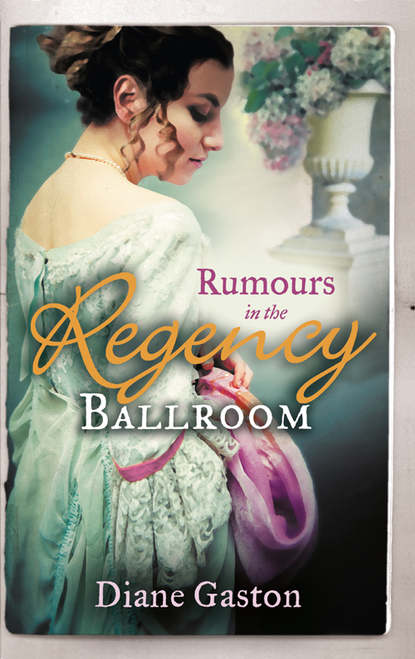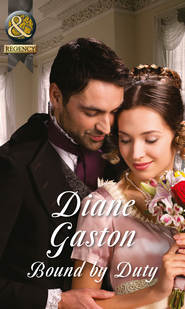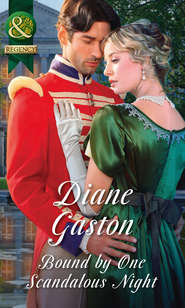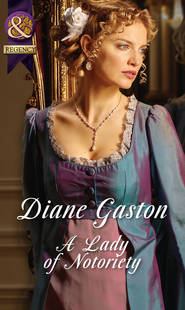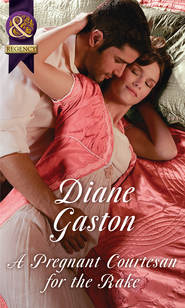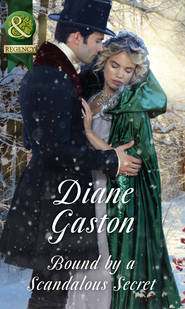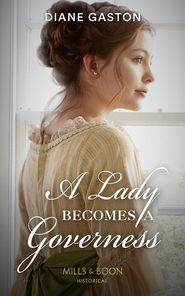По всем вопросам обращайтесь на: info@litportal.ru
(©) 2003-2024.
✖
Rumours in the Regency Ballroom: Scandalising the Ton / Gallant Officer, Forbidden Lady
Настройки чтения
Размер шрифта
Высота строк
Поля
She had not even seen Lord Crayden in an age. He had once been a suitor, but never a favoured one. He had no connection to her family or to Wexin’s. He certainly was not a friend. His biggest shortcoming, however, was that he was not Adrian.
“I do not want to see him,” she said.
Dixon bowed. “Very well, my lady.” He turned to leave.
“Wait.” She stopped him. “Do you suppose he has been abroad and brings news of my parents?”
It was the only reason she could think of that the gentleman would call. One letter from her parents, dated months ago, had finally reached her from India, but, from its contents, it was apparent that none of Lydia’s letters had reached them.
“He did not say so, my lady,” Dixon replied.
“Well, send him up, I suppose.”
A few minutes later Crayden was announced.
“Lady Wexin.” He bowed.
She took a step towards him. “Lord Crayden, do you bring me news?”
“News?” He looked puzzled.
“Of my parents? My brother?” She braced herself.
He blinked. “They are abroad, are they not?”
She released a frustrated breath. “You do not bring news of my family? Why are you here?”
He smiled, showing his white, even teeth. “I call merely to inquire after your health—and to offer my condolences.”
She did not believe him. “Condolences? I’ve been a widow for three-quarters of a year.”
His expression turned sympathetic. “I thought it best not to cause comment by calling upon you sooner.”
Such as during the brief time after the Queen had died when the newspapers had left her alone? “So you choose now when I am written of daily, with one man after another connected to my name?”
He gave no indication he perceived her barb. “I thought you might need a friend at this difficult time.”
When Adrian had offered her friendship she had almost believed him. This man she believed not at all.
“Lord Crayden, I knew you only very briefly during my come-out.” And then she’d refused his suit. “It is presumptuous of you to call upon me. Indeed, it makes me very unhappy. You expose me to more gossip I do not deserve.”
A wounded look crossed his face. “My lady, my intentions are honourable, I assure you. I have always had a regard for you, as you well know—”
A regard for her dowry, he must mean.
“I have worried over your welfare and could not wait another moment to assure myself that you were in good health.”
“Be assured, then, Lord Crayden, to what is none of your concern.” Her tone was sharp.
She walked towards the door Dixon had left open. She trusted the butler was nearby.
“I am delighted to know you are well,” Crayden continued, undaunted. “I shall rest easier at night.”
“That is splendid,” she said with great sarcasm, gesturing to the door. “You can have no other business here, then.”
He bowed again. “I shall take my leave of you, my dear lady, but I fear you will not be gone from my thoughts.”
She laughed drily. “I have become quite used to people thinking of me. Good day, sir.”
As he walked past her to the door, he bowed again.
After he left, her biggest regret at his visit was that he’d not been Adrian.
Chapter Ten
All London waits for news of Lady W—. Before midnight calls in the sixteenth day of August, Lady W—must give birth lest the world discover unequivocally that the child is not Lord W—’s progeny. The New Observer assures its readers it will keep a vigil up to the very stroke of midnight. In a Special Edition tomorrow morning, The New Observer will provide the answer. —The New Observer, August 15, 1819
Samuel waited outside the gate of Lady Wexin’s house. The night was warm and the haze that seemed to settle over London in the summer obscured the stars. Candlelight shone from the windows of the houses.
There were only two hours left for Lady Wexin’s chance to give birth to a legitimate, and Samuel had planned this assignation with Mary at this hour to discover whether Lady Wexin would make the time limit or not. The house had been quiet all day.
Through an open window he heard the faint chiming of a clock. Ten o’clock. He peered into the darkness to see if he could spy Mary coming. His wait was short. The gate opened and she appeared.
“Mary,” he greeted her in a low voice.
“Sam!” She hurried into his arms, warm and delightful.
“Ah, my love,” he murmured, wasting no time in bending his face to hers and tasting her eager lips.
Their encounters became more and more passionate each time they met. Their last time together had been spent walking in Hyde Park where Samuel had found a secluded bench and nearly forgot to engage Mary in conversation. Even though pursuing the story of Lady W filled his days, thoughts of Mary consumed his restless nights. He wanted her more desperately than he had ever wanted a woman. What little conscience he still possessed kept him from bedding her.
Her kisses were driving away that fragile resolve. They could so easily walk into the garden to the bench nestled among the fragrant foliage…
He reluctantly broke away from her. “Tell me of your day,” he murmured.
“We can sit in the garden,” she whispered, taking him by the hand and leading him through the gate to the bench.
He sat her on his lap, her soft derrière so very tantalising and arousing. “Now, tell me how you fare. I want to hear all about your days since I saw you last.”
Mary rested her head upon his shoulder. “I have spent the whole day fretting about my lady. She has remained in her bedchamber all day, not talking much, not eating. I know she is so worried and I am worried for her.”
“No baby, I take it.” He spoke the obvious.
“No baby.” She sighed. “She’s not even having pains.”
“She’ll not have the baby tonight, then?” He hoped she would say more.
She squirmed on top of him and he forgot that he wanted her to answer him. His hands slipped to her waist and he pressed her harder against him.





